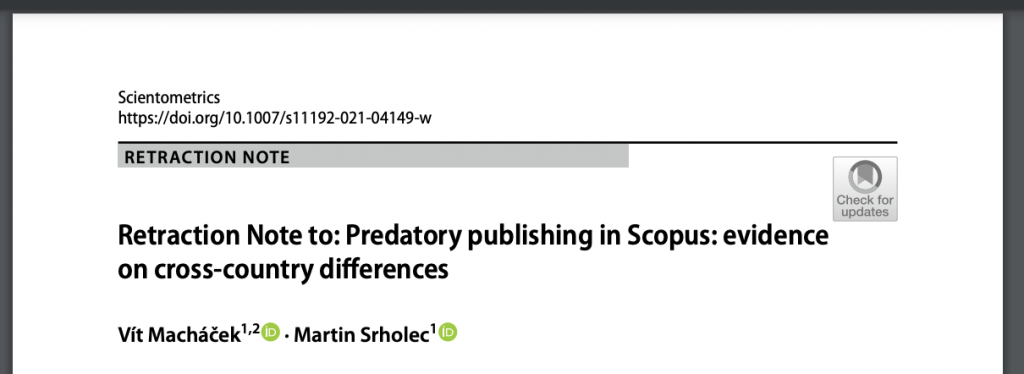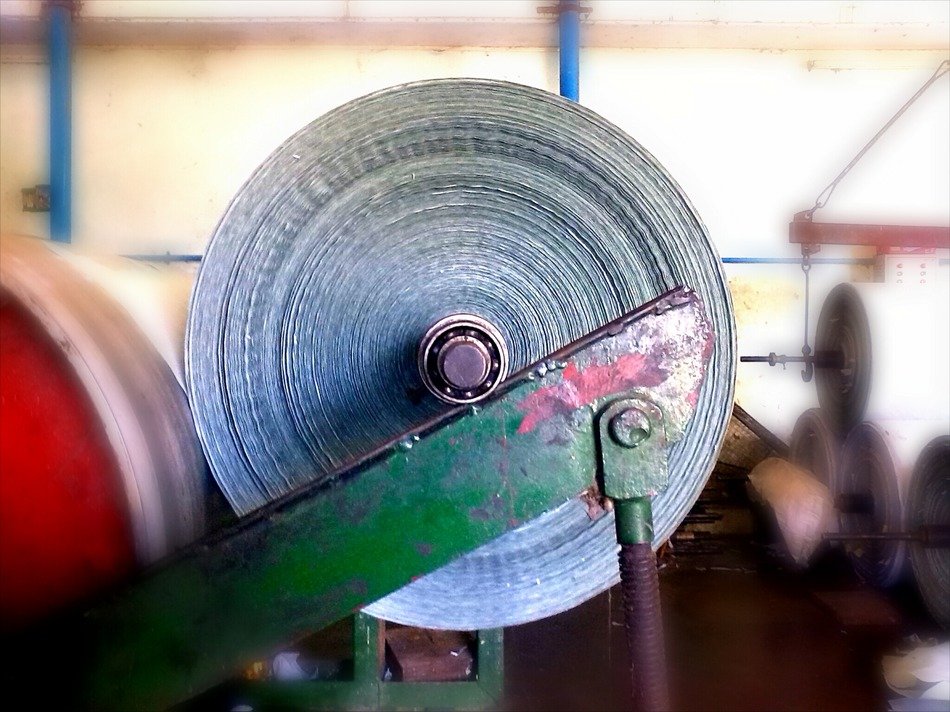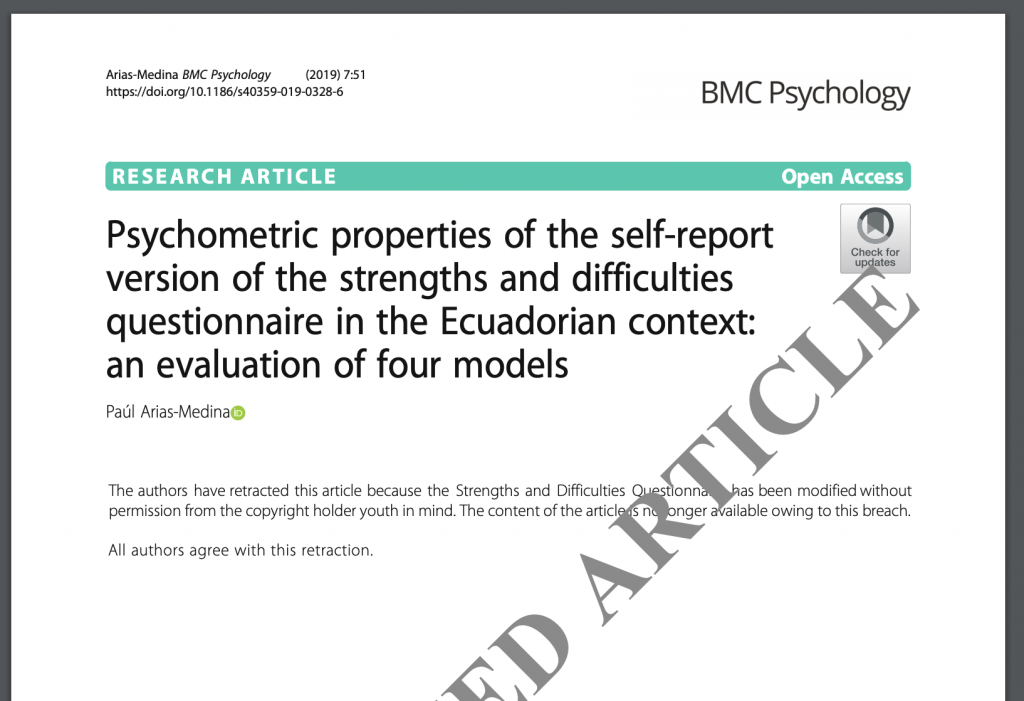
The authors of a paper taking a major database to task for including papers from allegedly predatory journals are objecting to the retraction of the article, which followed a request by one of the publishers mentioned in the analysis.
And at least one of the journal’s editorial board members is considering resigning over the move.
The paper, “Predatory publishing in Scopus: evidence on cross-country differences,” was published in Scientometrics, a Springer Nature journal, on February 7. It used Jeffrey Beall’s now-defunct list of allegedly predatory publishers to identify relevant journals. The next day, the study’s findings were the subject of a news story in Nature.
On May 6, Fred Fenter, chief executive editor of Frontiers, a publisher which figured in the analysis, sent Scientometrics editor Wolfgang Glänzel a letter, obtained by Retraction Watch, demanding that the paper be retracted immediately. Much of the letter is a critique of Beall’s list, which has certainly come under fire before. Fenter — whose criticisms of of the list prompted an investigation by Beall’s university, after which Beall eventually retired — writes:
Continue reading Authors object after Springer Nature journal cedes to publisher Frontiers’ demand for retraction







